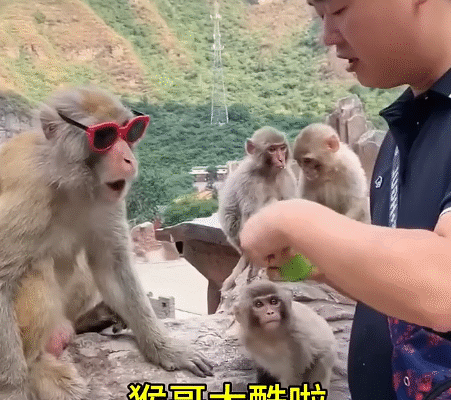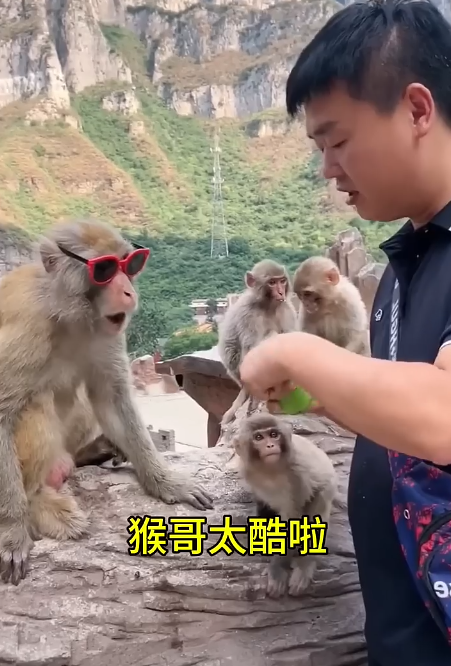
The golden sunlight pierced through the clouds, washing the ancient forest in hues of amber and fire. Deep within the sacred valley, a powerful aura rippled through the trees. The animals froze, the winds hushed, and the rivers slowed their flow—as if nature itself knew that something extraordinary was happening.
At the heart of that silence stood the Monkey King, once mischievous and proud, now standing on the threshold between the mortal and the divine. His fur shimmered like molten gold, every strand glowing with an inner flame. His eyes—those wild, curious, fearless eyes—had transformed into deep pools of radiant light. He had reached a point no ordinary creature could ever imagine: his appearance, his energy, his spirit—everything had reached its ultimate form.
For centuries, the Monkey King had roamed the earth, leaping across mountains, defying the heavens, and laughing in the face of danger. He had fought demons, rescued friends, and endured endless trials. But every act of courage, every mistake, every tear shed for his companions carved his soul into something greater. Now, the culmination of that journey stood before all creation—a being no longer bound by the weight of flesh or pride.
“Please… do not imitate,” whispered an ancient voice from the heavens, carried by the wind. It was a warning, gentle but powerful. “The path of the Monkey King is not one of glory—it is one of sacrifice.”
Indeed, the transformation had not come from vanity or desire. It had come from pain, from love, from the willingness to let go of everything once held dear.
The Final Trial
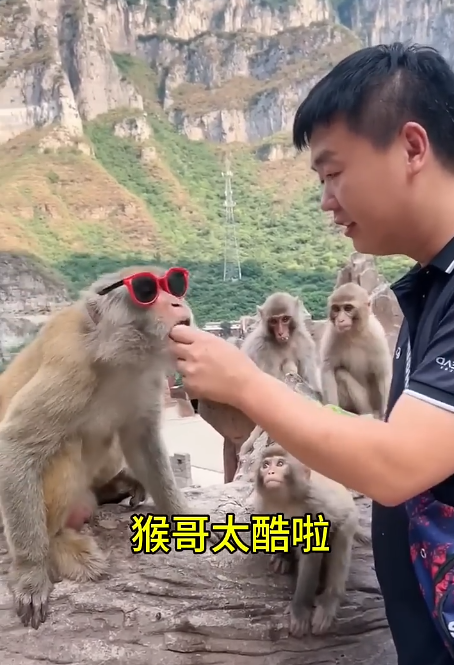
Before his ascension, the Monkey King had faced his greatest enemy—not a demon or a god, but himself. Deep inside a cave beneath the Sacred Mountain, he was confronted by a reflection of his own spirit.
The reflection mocked him, sneering, “You call yourself wise now? You think you’ve grown beyond pride? Without your arrogance, who are you, Monkey King? You are nothing!”
The real Monkey King closed his eyes. He had once believed that strength was about winning every battle, about standing above others. But through centuries of wandering, he had learned that true strength was understanding one’s own weakness.
“I am not nothing,” he replied softly. “I am everything I have loved, lost, and learned.”
As he spoke, the reflection trembled, fading into mist. The light within him expanded, filling the cave with warmth and silence. When he emerged, he was no longer merely a king among monkeys—he was a spirit of balance, a bridge between heaven and earth.
The Transformation
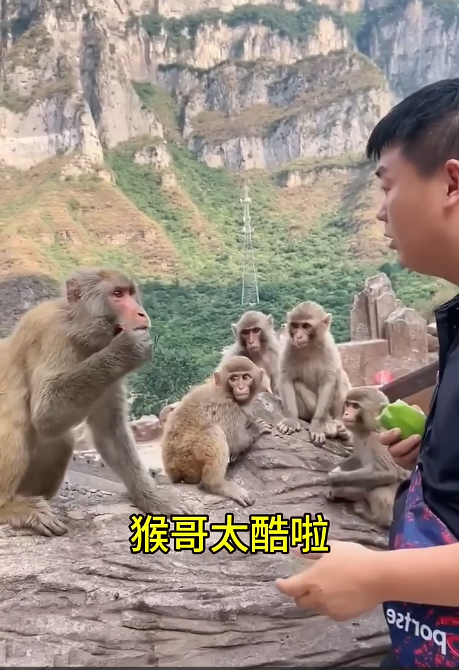
When dawn rose over the valley, the animals gathered as if drawn by an invisible call. Birds perched silently on branches, deer knelt on trembling knees, and the winds formed gentle circles around the clearing.
The Monkey King sat in meditation. Golden petals, formed from pure light, drifted around him. His fur no longer looked coarse or wild; it shimmered as if made of sunlight. His staff, once a weapon of rebellion, now floated before him, spinning slowly, humming with the harmony of the cosmos.
He had let go of his anger, his pride, and his longing for recognition. In return, the universe granted him clarity.
The skies opened. Thunder rolled—not in wrath, but in reverence. Lightning shaped itself into symbols across the clouds, ancient markings of wisdom. A column of light descended, enveloping him.
When it faded, he was gone.
Only a warm breeze remained, and in it, the faint echo of laughter—gentle, kind, eternal.
The Message of the Spirit
Days later, travelers passing through the forest spoke of strange miracles. Trees glowed faintly at night. Streams flowed with crystal clarity. Monkeys played freely, unafraid of predators. And in the wind, people could hear a whisper:
“The Monkey King has become a spirit. Do not imitate. Understand instead.”
What did it mean?
It meant that imitation without understanding leads to destruction. The Monkey King’s power came not from his might or appearance, but from his journey of growth—his mistakes, his humility, and his compassion. To imitate him without walking that path was to court disaster.
The villagers who tried to mimic his meditations or his staff techniques found themselves frustrated, even harmed. But those who sat quietly by the riverside, reflecting on their actions, began to feel a strange peace.
The spirit of the Monkey King did not want worship. He wanted wisdom to be shared, not copied.
The Spirit’s Return
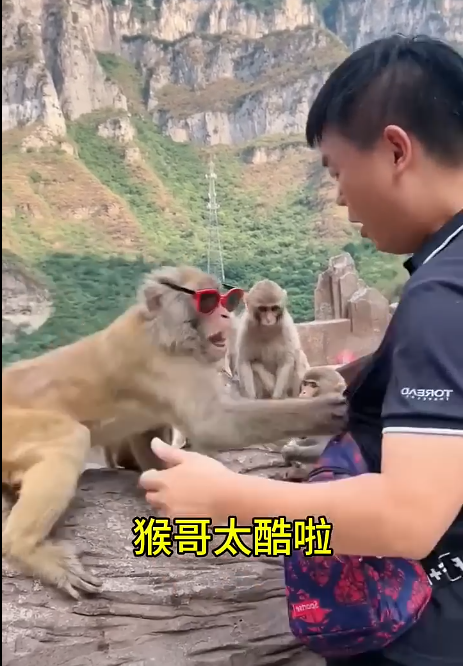
One evening, under the silver glow of the full moon, a young monkey wandered into the valley. He was curious and brave, but also reckless—much like the Monkey King in his youth.
He climbed the sacred rock where legends said the King had ascended. “Great King,” he called, “I want to be like you! Show me how!”
The wind stirred. Leaves rustled. Then, a soft golden light appeared, taking the faint outline of a familiar figure.
“My child,” the spirit said, his voice both firm and gentle, “you cannot be like me, for I am not what I once was. You must be like yourself.”
The little monkey tilted his head. “But you were strong and fearless. I want to be that!”
The spirit chuckled, a sound like wind chimes. “Strength is not the absence of fear—it is the courage to face it. I learned that too late.”
The little monkey sat silently, eyes wide. The spirit continued, “Do not chase my image. Chase your truth. Every creature has its path. Walk yours with kindness and courage, and you will find your own light.”
As the golden figure faded, the young monkey bowed deeply. He didn’t fully understand, but he felt something stir in his heart—a spark of hope, of purpose.
Legacy of Light
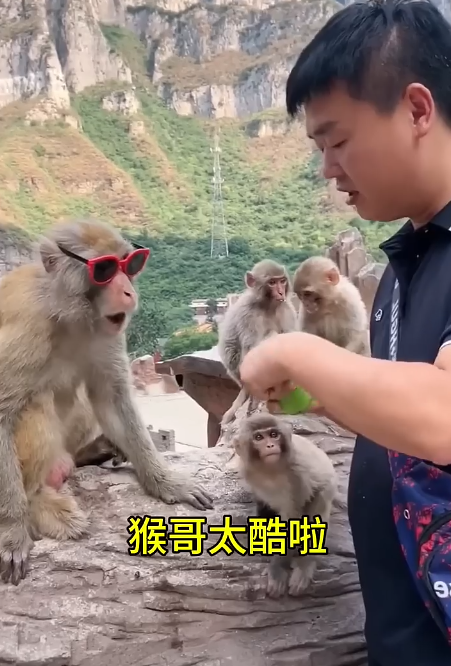
In the centuries that followed, the Monkey King’s legend spread across lands and generations. Artists painted him as a radiant being, scholars wrote of his transformation, and children whispered prayers to his spirit before sleep.
But the truest devotees were not those who built temples in his honor—they were those who lived with compassion, who used their strength to protect, not dominate, and who saw wisdom in humility.
The Monkey King’s spirit became the unseen guardian of balance. Whenever pride began to grow too loud in the hearts of mortals, a whisper would rise on the wind:
“Remember me not for my power, but for my peace.”
And so, even though his physical form had vanished, his essence remained. He was in the laughter of the forest, in the courage of the weak, in the quiet of the dawn.
The Eternal Lesson
The phrase “Please do not imitate” carved itself into the memories of all who heard the legend. It was not a warning of fear, but of wisdom.
The Monkey King’s peak appearance—the divine glow, the golden aura, the supernatural strength—was never meant to be a goal. It was a byproduct of inner transformation, a symbol of harmony between the spirit and the universe.
Those who sought to copy his form missed the essence. But those who sought to understand his soul found enlightenment.
And so, the Monkey King, now a spirit of timeless grace, continued to watch over the world—not as a god demanding worship, but as a teacher reminding all beings that greatness is not in appearance, but in awakening.
Under the eternal sky, his laughter still echoes, soft and free.
The message remains simple, profound, and everlasting:
“The Monkey King has become a spirit. Please do not imitate. Instead, understand, love, and rise.”
